Past lectures
Watch previous lectures from the Gibbons Lecture Series.
2023 series
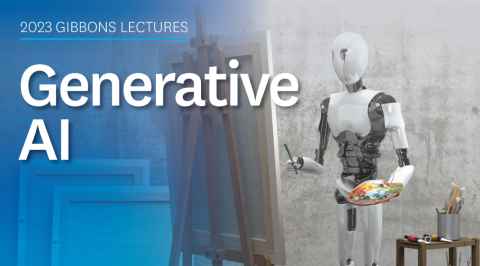
Generative AI
2022 was the year of Generative Artificial Intelligence (AI), and it looks like it will continue to pick up steam into 2023 and beyond.
Generative AI systems are built on massive datasets and produce fresh material comparable to the training examples using machine learning techniques. They have the ability to generate new material, such as prose, images and music. Over the past 2 years, neural network image generation tools like DALL-E and Stable Diffusion have reached close to human-level art generation, and chatbots like ChatGPT author prose that looks plausible.
Are Generative AI systems an end in themselves or are they a step towards human level general intelligence?
AI and the New Creative Revolution
Tim Gibson (Stolen Glances Studio)
AI Colonisation and Mātauranga Sovereignty
Karaitiana Taiuru (Taiuru & Associates )
How does generative AI work and what is its future?
Jiamou Liu (University of Auckland)
ChatGPT and the Road to Artificial General Intelligence?
James Maclaurin (University of Otago)
2022 series
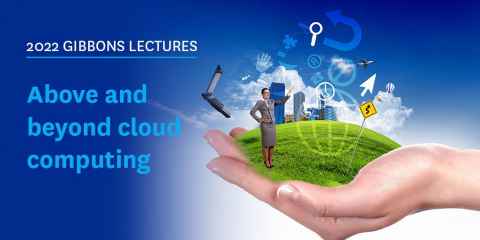
Above and beyond cloud computing
Cloud computing provides a sustainable solution that enables flexibility and cost savings. However with cloud computing there are also questions around accessibility, data governance and Māori data sovereignty.
With corporate sustainability efforts increasing and forecasts indicating that continued cloud adoption could reduce CO2 emissions substantially in the near future, industry and the public sector are adopting cloud solutions to offset the rate of power consumption while providing "safe" solutions. Safe solutions include hybrid clouds, offering the flexibility to distribute workloads over public servers, while keeping sensitive data on private servers.
The 2022 Gibbons Lecture Series focused on how cloud computing will evolve to meet the increasing demands of industry and the public sector. What can we expect next, beyond the cloud? How can cloud computing and beyond give effect to Te Tiriti o Waitangi? How can cloud accessibilty be improved for all? What is industry in Aotearoa New Zealand predicting? What are the new technologies on the horizon?
Cloud Computing: Everything as a Service
Associate Professor David Eyers (University of Otago)
Māori Data Sovereignty – Ka mua, ka muri
Panel facilitated by Dr Daniel Wilson (University of Auckland)
Hey! You! Get onto my cloud! Going from the bottom of the sea to outer space for cloud coverage
Dr Ulrich Speidel (University of Auckland)
What is the future of cloud computing in Aotearoa NZ?
Panel facilitated by Dr Danielle Lottridge (University of Auckland)
2021 series
Dissolving the interface between humans and computers
For many people, it’s become impossible to imagine life without a smartphone. We’re so
used to keeping them close and checking them constantly without thinking. They could
be seen as permanent attachments to our bodies, or permanently attached burdens.
Technologies beyond the smartphone that blur the boundaries between the human body and computers are becoming more commonplace, and are merging our work, social, personal and cultural identities. Immersive virtual reality is widespread, and seamless augmented reality seems imminent. There are also signs that full brain-computer interfaces are making their way from science fiction into reality.
Have we reached the pinnacle of these human-computer technologies? Is there more functionality or benefit we can gain? And how will they impact our wellbeing and community cohesion?
Our 2021 Gibbons Lecture Series examined the latest technologies connecting humans and computers; the ways they are developed, the new innovations on the horizon, and how they could be used to connect ourselves to wellbeing, diversity and culture.
Augmenting Reality: From Augmented Paintings to Augmented Perceptions
Associate Professor Tobias Langlotz (University of Otago)
Tikanga AI: Enabling mātauranga Māori in the future of AI development within Aotearoa - New Zealand
Professor Tim Dare, University of Auckland
Digital Well-being: From Human Factors to Mixed Reality Rehab
Dr Danielle Lottridge, School of Computer Science, University of Auckland
Assistive Augmentations: Creating new Human Computer Interfaces that Seamlessly Integrate with our Body, Mind and Behaviour
Associate Professor Suranga Nanayakkara, Auckland Bioengineering Institute, University of Auckland
2020 series
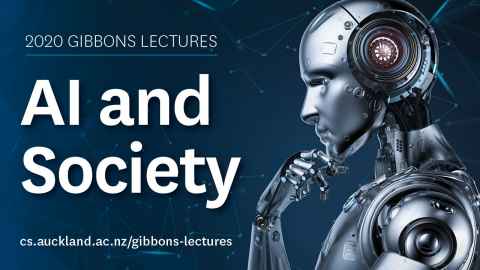
AI and Society
Artificial Intelligence (AI) promises to make improvements to our lives in so many ways, including enhancing efficiencies in the workplace, generating productivity gains and having a positive impact on our wellbeing. It also promises to help with even bigger issues like uncovering criminal activity and solving crimes, dramatically influencing healthcare, addressing global challenges, and reducing global inequities and extreme poverty. AI promises to have a far-reaching beneficial impact in our society. This evokes not only excitement but also fear. There are fears around privacy, trust, freedom of speech and the usage of AI and its regulation.
The 2020 Gibbons Memorial Lecture Series discussed the fears and excitement of AI today and in the future, and the impacts it could have both on and in our society.
Our future with AI
Professor Michael Witbrock (University of Auckland)
Big data: Transparency and reliability
Professor Tim Dare (University of Auckland)
Learning to adapt to changes in this dynamic world
Dr Yun Sing Koh (University of Auckland)
Social media, AI, and society: Some psychological insights
Associate Professor Kumar Yogeeswaran (University of Canterbury)
This event was not recorded.
2019 series
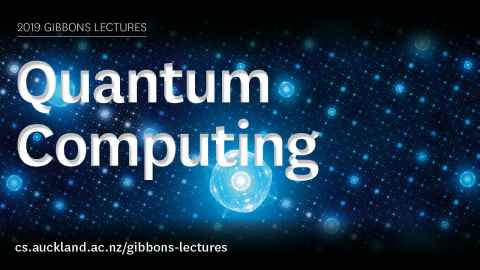
Quantum computing
Quantum computers are remarkably complex machines that challenge almost everything we know about computing. Given their complexity, it difficult for us to understand their limits. Experts believe quantum computers can crack all modern security algorithms and do immediate pattern recognition. If this is the case, what are the implications for not only computing but also wider society? The 2019 Gibbons Memorial Lecture Series delved into this fascinating topic.
Our thanks to IT Professionals New Zealand, Auckland ICT Graduate School, and our generous donors for supporting the 2019 Gibbons Memorial Lecture Series.
Quantum computing: What it is, and how we do it?
Dr Michael Dinneen (University of Auckland)
Cryptography after quantum computers
Professor Steven Galbraith (University of Auckland)
Searching for the quantum frontier
Professor Michael Bremner (University of Technology Sydney)
Panel discussion: The future of quantum computing
With Professor Howard Carmichael, Professor Cristian Calude and Professor Gill Dobbie (University of Auckland)
2018 series
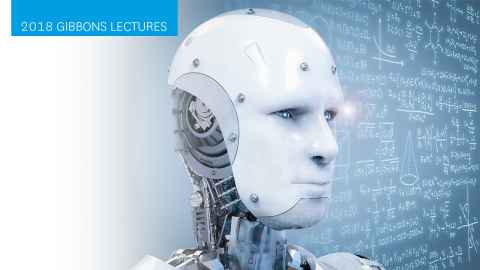
Robots everywhere - Robotics in industry and at home
Experts tell us that robotic technology will soon dramatically change our lives. It is true that, in recent years robots, machine learning and automation has become more cost-effective and reliable.
The 2018 Gibbons Memorial Lecture Series discussed the present and future of robotic technology.
Robotics research in New Zealand
Professor Bruce MacDonald (University of Canterbury)
Robotics in industry
Mike Shatford (Managing Director of Design Energy Limited)
Will robotic vision ever fully replace human vision?
Associate Professor Patrice Delmas (University of Auckland)
Can we be friends with robots?
Associate Professor Elizabeth Broadbent (University of Auckland)
2017 series
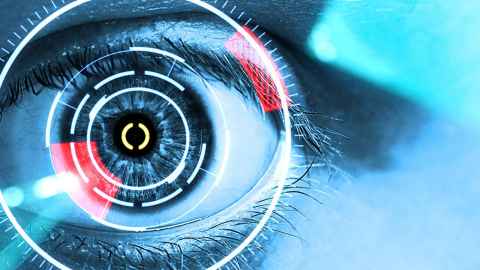
Steps towards the singularity - Artificial intelligence and its impact
Machines that mimic human cognitive functions, such as learning and problem solving, are said to exhibit artificial intelligence or AI. As the use of such smart technology grows, some believe that we are rapidly approaching The Singularity - the hypothesis that artificial super-intelligence will trigger runaway technological growth and result in unfathomable changes to human civilisation.
The 2017 Gibbons Memorial lectures series aimed to highlight the important role that artificial intelligence plays in our lives.
AI: from Aristotle to deep learning machines
Professor Nikola Kasabov (Director of the KEDRI Research Institute at Auckland University of Technology)
Home smart home
Professor Hans Guesgen (Massey University)
Deep learning - what's missing?
Associate Professor Marcus Frean (Massey University)
The ethics of AI
Associate Professor Ian Watson (University of Auckland)